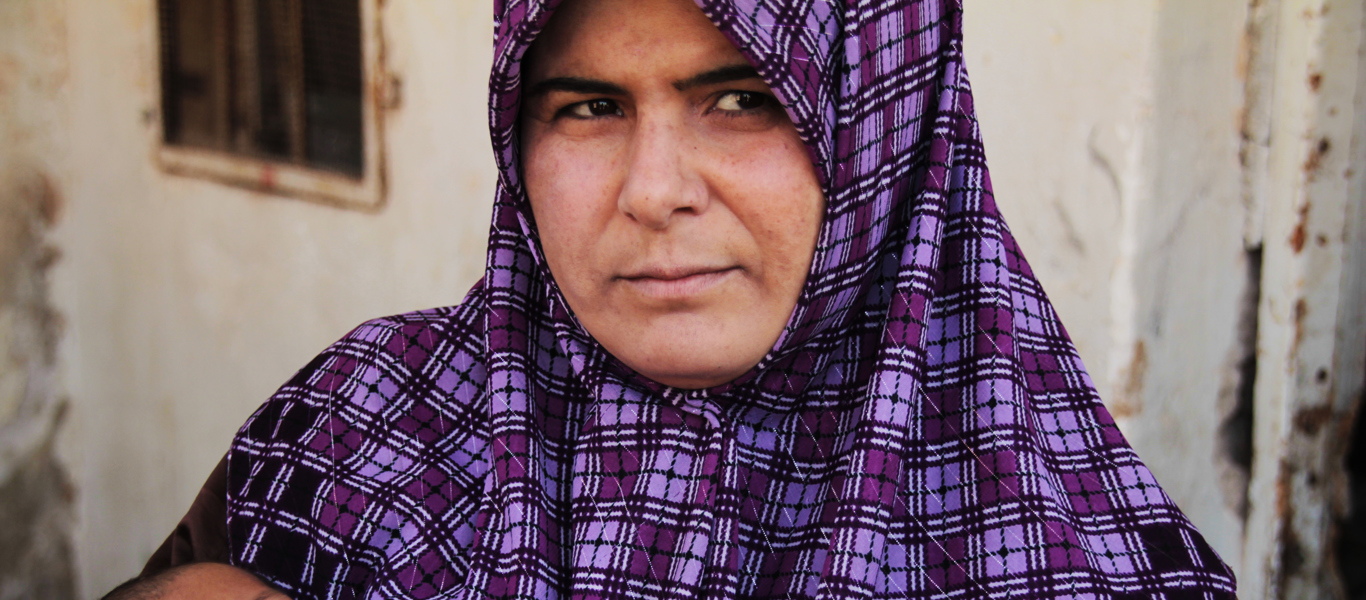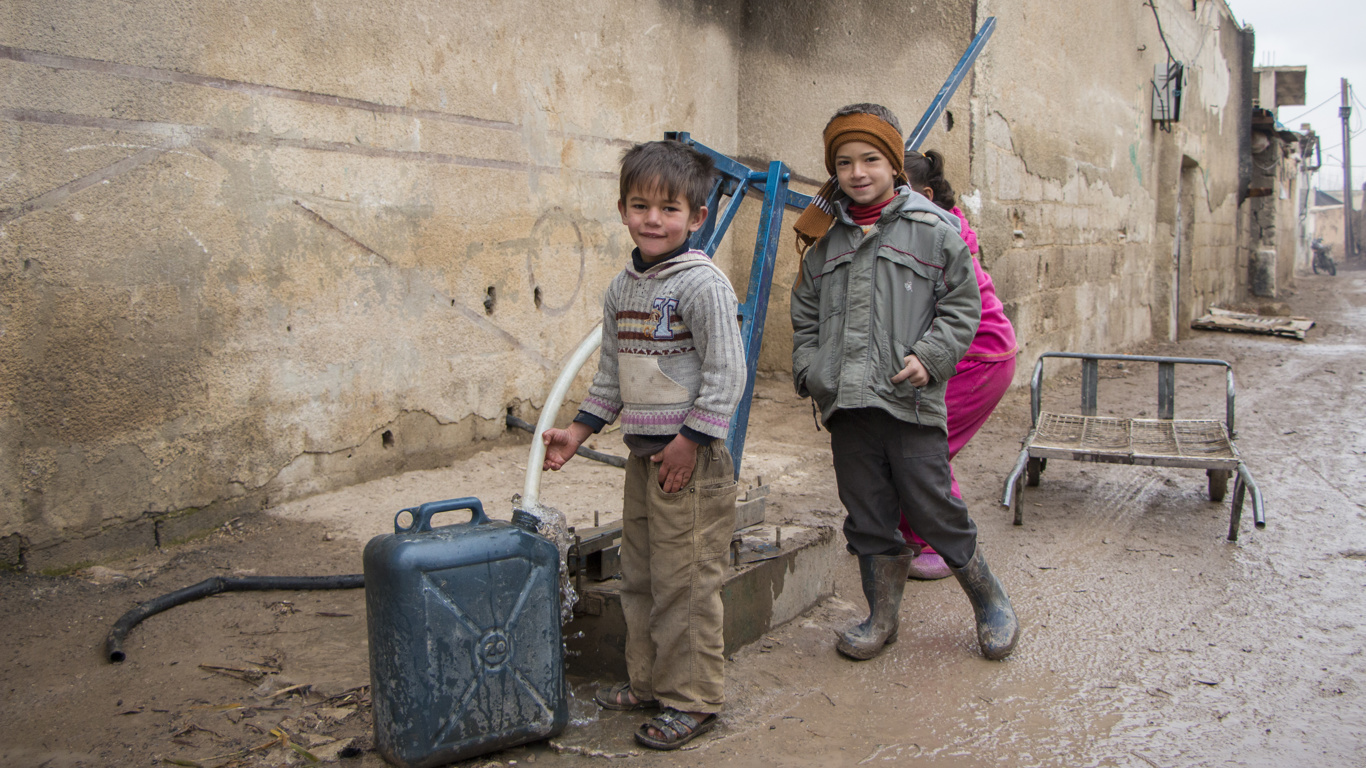
Syrian's Are Suffering And Need Help
This time last year, many Middle East commentators were distastefully hailing the Syrian conflict as entering “the end game.”
Wednesday, July 1, 2020
By Othman Moqbel, Chief Executive Officer Syria Relief
This time last year, many Middle East commentators were distastefully hailing the Syrian conflict as entering “the end game.” Since then, the country has been ripped apart by the brutal Idlib campaign which killed thousands and displaced millions, an economic crisis which has seen the Syrian lira lose 60% of its value in the past month and, like the rest of us, they are also battling the COVID-19 pandemic. Not only is the conflict not ‘nearly over’, the suffering for the Syrian people has no end in sight.
COVID-19 is just another problem for Syrians to try and survive though. Whilst the pandemic presents a natural disaster for Syrians, the roots of their problems are manmade that require political solutions.
This is why tomorrow’s culmination of the Syria: IV Brussels conference on Supporting the Future of Syria and the Region, a joint effort by the UN and EU to address the humanitarian needs of the Syrian people, is so needed. Tomorrow Ministers from around the globe will meet to discuss a way forward to alleviate the suffering of the Syrian people. If they are serious about helping the Syrian people, they need to agree to achieve three things:
Firstly, the UN Security Council has until July 10th to renew resolution 2504 – namely the agreement to allow aid to reach over 4 million Syrians living in area outside of the Syrian regime’s control via two border crossings in Northwest Syria. This must be renewed for a 12-month period to avoid a potential humanitarian catastrophe and wholesale loss of life.
When the resolution was last up for renewal in January, the UN Security Council agreed to close al-Yarubiah crossing in Northeast Syria, this had fatal consequences. Due to this decision, Northeast Syria is currently struggling to get medical equipment and PPE, despite facing COVID-19, and a dozen healthcare facilities are at risk of closure.
If crossings are closed in Northwest Syria the healthcare system in Idlib and areas of Aleppo, already decimated by the brutality of the conflict, will collapse and people will starve. NGOs like Syria Relief will try our best to fill the gaps but, inevitably, people will die from disease and hunger.
Secondly, over 50% of all Syrians are homeless, displaced either within Syria or refugees in a foreign land. As the Joint Agency NGO Report, released last week, pointed out. Many long to return home and reintegrate into Syrian society, yet very few see this as realistically happening in the near future.
Those who want to return, but don’t, fear that if they return, they will not be safe, they will have no access to justice, they will be unable to meet their basic needs, such as food and water, and have no access to healthcare, education and all of the other basic services and infrastructure which has been damaged and destroyed by war. Whilst few want to, the majority of Syrians stuck in refugee and IDP camps are consigned to living in a state of stateless limbo for the next 5 to 10 years.
Primarily the Syrian government, but also all other actors who control territory in Syria, must address these concerns, ensure and monitor the safety of returnees, uphold the rule of law and an independent justice system. For this to happen, there needs to be political will. It is beholden of the Ministers in attendance, many of whom are allies of actors within the conflict, to ensure the incentives are there.
Likewise, they must ensure that international community supports in the rehabilitation of the vital services which have been destroyed, from hospitals to schools to water systems. Which brings us onto the final demand.
We are about to crash head-on into a historic, global recession, this will likely mean many donor governments will be cutting back on humanitarian aid and development budgets. Whilst the UK government are obliged to spend 0.7% of GDP on development, our shrinking economy means GDP will be lower and this 0.7% will represent a significantly smaller figure than usual.
Humanitarian crises like Syria, Yemen and the DRC need to be safeguarded from budgetary cuts. Commitments need to be made that countries who have endured years of violence and inhumanity do not end up also footing the bill for the COVID-19 recovery. Over 80% of Syrians now lives below the poverty line, infrastructure is decimated and they are unprepared for a pandemic which the developed world has struggled to battle. These people have already lost enough.
No matter how many dozens of hospitals we operate, or how many hundreds of schools we run, or how many thousands of tonnes of food we distribute, humanitarian aid organisations like Syria Relief cannot solve the suffering of the Syrian people, we can only alleviate it. We are treating the humanitarian symptoms of a political disease. For the pain to stop, big, political decisions need to be taken. Starting tomorrow.

